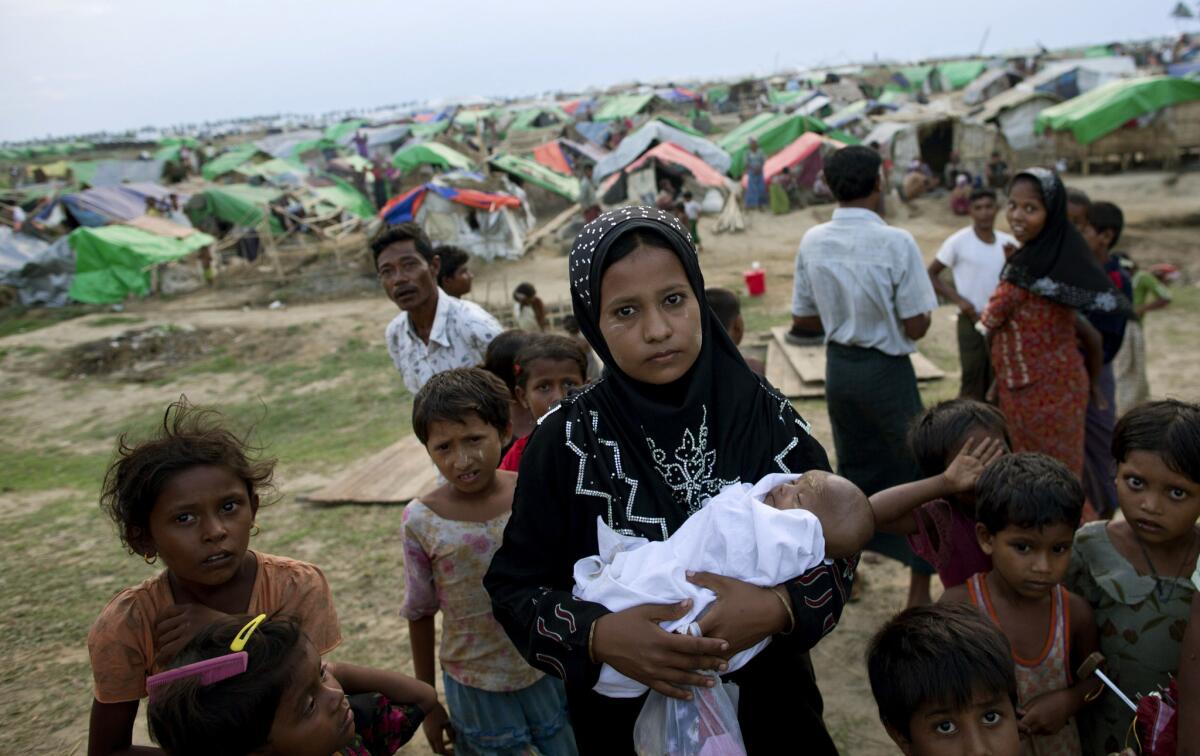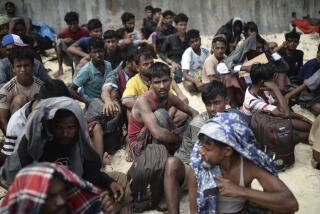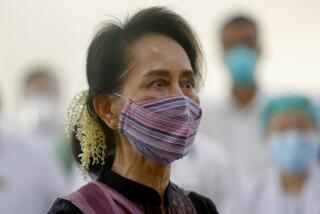The repressed Rohingya of Myanmar

The relationship between the White House and the government of Myanmar has been steadily improving. President Obama went there in November; President Thein Sein came here in May. Last year, the administration eased the prohibition on Americans doing business in Myanmar, and this week, it repealed most of the remaining sanctions on trade (although it will continue to ban the import of rubies and jadeite).
These are Myanmar’s well-deserved rewards for embarking on a program of liberalization and democracy — moving away from absolute military rule, holding credible elections and freeing many political prisoners. Aung San Suu Kyi, the democracy activist who spent 15 years under house arrest, has been in parliament for more than a year.
And yet for the 1 million Rohingya Muslims in the country, life is only getting worse. The Rohingya are an ethnic minority considered to be intruders by the government of Myanmar and by much of the country’s majority Buddhist population. Thousands have been displaced from their homes in the western state of Rakhine by mob violence and are now relegated to camps for displaced persons. The United Nations has declared the Rohingya among the most persecuted groups in the world.
Last November, Sein said he would allow the U.N. High Commissioner for Human Rights to set up an office in the country, in part to monitor the plight of the Rohingya. But human rights advocates say the government has dragged its feet and the office has not yet been established, although a U.N independent investigator, or special rapporteur, has been allowed to make several trips through Myanmar recently.
It’s appropriate for the U.S. to recognize and reward the advances that Myanmar has made. But it should not turn a blind eye to the country’s continuing problems, including religious and ethnic tension. It should exercise what clout it has to help the U.N. set up the human rights office, and should push strenuously for authorities to dismantle repressive policies against the Rohingya, such as limiting families to two children.
The U.S. role is especially important because there are still so few powerful voices of protest within the country. Suu Kyi has spoken only tepidly against the repressive policies toward the Rohingya — and many in her country didn’t like that she weighed in at all. A troubling anti-Muslim nationalism is spreading in Myanmar, and it will take pressure from the U.S. along with other countries and the U.N. to dispel it.
More to Read
A cure for the common opinion
Get thought-provoking perspectives with our weekly newsletter.
You may occasionally receive promotional content from the Los Angeles Times.






